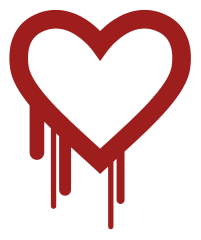 Mageia 5, released on Friday and over a year in the making, is familiar territory to those of us who cut our Linux teeth on Mandriva back in the days when it was called Mandrake. That’s not to say that the distro is old or outdated, far from it, but any Mandrake old-timer will instantly recognize the roots of this distro.
Mageia 5, released on Friday and over a year in the making, is familiar territory to those of us who cut our Linux teeth on Mandriva back in the days when it was called Mandrake. That’s not to say that the distro is old or outdated, far from it, but any Mandrake old-timer will instantly recognize the roots of this distro.
FOSS Force
The Second Annual Fossetcon Conference, which is scheduled to be held at the Hilton Lake Buena Vista in Orlando, Florida on November 19-21 has announced its Call for Papers on the conference website. According to the site, the call is officially open until August 17, but might be extended if certain conditions, such as “speaker diversity, relevant content and or lack of submissions” are not met.
The website lists some specifics that the organization is seeking:
First of all, we’d like to thank the 49 contributors who generously contributed to our IndieGoGo fundraising campaign and to all who helped support and get the word out about our efforts. Special thanks go to Elizabeth K. Joseph, Todd Lewis and his incredible team at IT-oLogy and Ken Starks for supplying us with items to offer as perks during the campaign. We’d also like to thank Steven J. Vaughan-Nichols and Carla Schroder for writing articles for FOSS Force supporting our efforts.
At just before midnight pacific time Monday night, our IndieGoGo fundraising effort ended after a six week run. In the end, we raised exactly $2,300, or 38.33% of our goal of $6,000 (its nice to see that the folks at IndieGoGo are nothing if not precise when it comes to figures). The money is to be used to expand our coverage of FOSS and free tech by offering compensation to writers. Although this is not enough to fund our planned expansion for six months as intended, it is enough to get us started while we put “Plan B” into effect.
It appears as if much of the open source infrastructure we depend on is suffering from neglect. That’s the message brought to the SouthEast LinuxFest (SELF) by David Nalley. Listening to his talk, “The Tragedy of Open Source,” it was hard not to think that some of our infrastructure projects are beginning to resemble some disintegrating municipal water and sewer systems, or maybe compare his examples with our crumbling roads and bridges. Nalley is a South Carolina based “recovering sysadmin” who now wears many hats at Apache as well as being an employee at Citrix.
 The neglect he mentions has caused more than a few near misses that fell inches short of disaster, with two major incidents happening last year alone.
The neglect he mentions has caused more than a few near misses that fell inches short of disaster, with two major incidents happening last year alone.
Take the Heartbleed vulnerability that affected openSSL. Nalley points out that last year when the bug was discovered, there was only one person, earning a mere twenty grand a year, actively maintaining the openSSL project. Also last year, there was only one person maintaining bash when Shellshock was discovered.

The Sunday Times article, with the headline “British Spies Betrayed to Russian and Chinese,” carries the byline of Tom Harper, Richard Kerbaj and Tim Shipman and expands on a news story spreading across the UK on the pulling of some intelligence operators from Russia and China by the UK government over fears that they might have been compromised by information leaked by Edward Snowden.


 I participate in a group of professional penetration testers (the nice folks who help you test your security as if they were the bad guys) called
I participate in a group of professional penetration testers (the nice folks who help you test your security as if they were the bad guys) called  FOSS Force has learned that Mageia will soon officially announce the release of the stable version of Mageia 5, most likely later today. According to a source within the organization, the ISO images were pushed to the distro’s main mirror at about 7 P.M. EST yesterday. According to our source, the developers are now just waiting for the images to be available on all mirrors before making the official announcement.
FOSS Force has learned that Mageia will soon officially announce the release of the stable version of Mageia 5, most likely later today. According to a source within the organization, the ISO images were pushed to the distro’s main mirror at about 7 P.M. EST yesterday. According to our source, the developers are now just waiting for the images to be available on all mirrors before making the official announcement.


 The Linux Foundation, ever in the forefront of shaping the future of Linux, has announced the 2015 Linux Training Scholarship Program, which aims to provide educational funds “to up-and-coming developers and sysadmins who show incredible promise…but do not otherwise have the ability to attend Linux Foundation training courses,” according to a page on the
The Linux Foundation, ever in the forefront of shaping the future of Linux, has announced the 2015 Linux Training Scholarship Program, which aims to provide educational funds “to up-and-coming developers and sysadmins who show incredible promise…but do not otherwise have the ability to attend Linux Foundation training courses,” according to a page on the 
